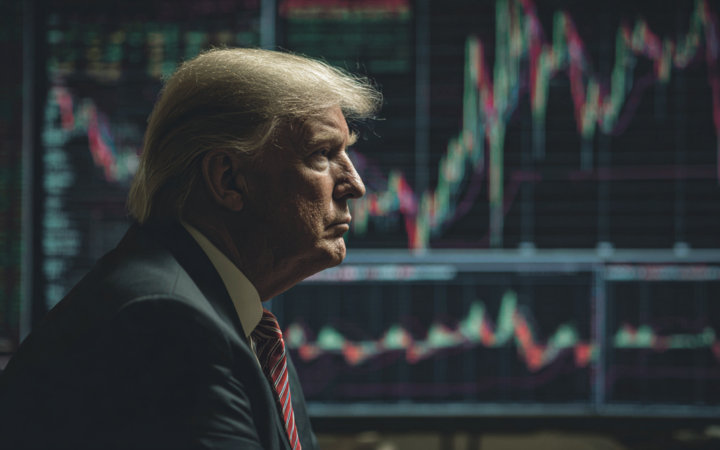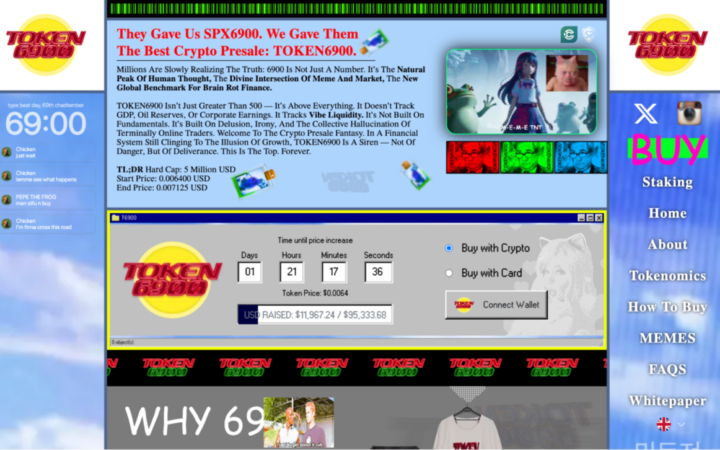
The FOne Trading Zone has Officially Opened – What are the Mysteries Behind These Actions?
The announcement was confirmed on their official website. The release shared three news topics:
- The adjustment to the FT issuance mechanism has stabilized, and no major changes will occur in the future.
- FCoin positioning was officially upgraded: technical support for trading platform products and a governance structure for a comprehensive community.
- FOne will be released online soon.
FCoin officially opened the new subsidiary, the FOne trading zone. This indicates that FCoin has entered version 2.0 with a new, community-based, platform governance structure, an upgrade from version 1.0 which relied on a cold start and innovative “transaction-mining” model.
FOne aims to decentralize the “rights of token issuance” and return governance in the traditional exchange to the sponsors, creating a new community-based, platform governance structure and a new exchange ecosystem. I cannot help but to praise FCoin for their ingenuity and hard work.
For Those New to FOne, Let Me Introduce You
FOne is an independent subsidiary trading zone of FCoin. They allow sponsoring companies to issue tokens, regulate trading, offer exclusive pages to their traders and eventually have their own FCoin subdomain. FCoin does not interfere in sponsor trading zones. They are free to self-regulate so that it best suits their business and community. Transaction-mining is the same on the main FCoin site as it is in the trading zones. Users can take advantage of the 100% return of trading fees in the form of FT.
When I visited the FCoin website, FOne is already listed on their homepage main menu.
If you select FOne from the menu, you are navigated to their platform. On this page, you can explore the platform open trading zones from sponsors. Even though they have been live for a short time, there is already approximately $500,000 in daily trading volume. To show the approximate volume, below is a screenshot showing some of the recent trading data. Given that they have just recently launched the platform, we can expect the volume to increase gradually over time.
There are a few trading zones sponsored by firms such as FBG and Bawei Capital that are not yet open to the public. We expect many other popular funds to start offering zones as volume and reputation of the platform increases. We are confident that it will gain popularity based on how well the current list of sponsors and their portfolios have been received by the investment community.
As I was exploring the different trading zones, I found the selection of ones currently online to be limited. However, there were listings from projects like LOOM, GSE, IOST, HPB, UGC, and others. The performance of some of the trading zones were quite good; GSE performed positively during the previous trading period. The most popular zones were sponsored by many different organizations and it seems like this type of zone will be favored over some of the others.
While there are not many sponsored trading zones live at the moment, there are several companies trying out the FOne platform to see how they can utilize it going forward. It is very challenging to launch a token and many projects would like to ensure their launch runs smoothly for their staff and investors.
Because company names are listed as sponsors of the trading zones, there is more pressure to ensure that their launch and governance is successful. By launching their project on the FOne platform, investors can expect that the trading zone has been audited thoroughly, maybe even more so than if they launched the project independently. Being that the project is going to be listed immediately, they are required to disclose all information to the exchange, making it harder to deceive investors.
Zhang Jian, founder of FCoin, has repeatedly stressed to the public that in the future, FCoin will pay more attention to their community and platform. FCoin will focus on the improvement of trading systems and core products and provide better product and technical support for users and project parties. As a representative of the community’s ecosystem, the sponsor institution will assume responsibility for the token issuance and project management in the future.
Although FCoin provides operational services at the technology and basic exchange levels, it neither directly judges or endorses the quality of the project, nor does it directly determine whether a project has a token issued or not. Sponsors are required to refrain from endorsing projects which are fraudulent or engage in pyramid or other such schemes.
Security has always been an important issue for encrypted digital asset exchanges. FCoin will gradually withdraw from the non-technical areas such as judgments on specific projects and token issuance management through launching FOne, and focus on the improvement of the trading system, exchange security and core product functions. The spirit of such an exchange is very forward-thinking.
In order to fund these upgrades, the exchange can aggressively expand their token issuance customers and charge high issuance fees, while investing the profits in the exchange for technology upgrades. With many exchanges focusing only on trading fees to build wealth, some do not maintain principles of improving their platform because they feel like they already have with their users want.
FCoin charges reasonable fees to allow for the platform to continue to improve while reinvesting excess profits back into the wallets of their users. Zhang Jian would rather build a strong community than just an exchange.
FCoin has rapidly grown from a new unknown exchange to one with the highest leading global trading volume. The biggest success of their platform has been the innovation of “transaction-mining” and “income dividends” in FT, the platform currency of FCoin. The platform returns the trading fee paid by users in the form of FT, which attracts many users and professional investment teams. With the FOne launch, it is clear to see that FCoin has further ambitions.
The emergence of FCoin has greatly promoted the development of encrypted digital asset exchanges. More and more users, projects and organizations have become aware that the era of exchange profiteering is shifting to a more user-centric model. If the traditional exchanges do not actively change, they will be replaced by new exchanges represented by FCoin’s model. I am optimistic about the community-based development shown by FCoin.
The model innovation of transaction-mining has helped FCoin lay the foundation for rapid development. The exchanges that copy the transaction-mining feature of FCoin are going to continually be playing catch up to their development model; it is hard to compete when you do not have the experience with the platform and are not able to make quick changes and raise funds to finance improvements.
I am looking forward to the innovation shown by FOne and their sponsored trading zones. A few months ago, I did not realize some of the negative aspects of traditional exchanges. Now that I have researched and understand how they run and provide service to their users, I realize how important FCoin is to the blockchain industry. FCoin has become the exchange of the future.
Disclaimer: This publication is sponsored. Coinspeaker does not endorse or assume responsibility for the content, accuracy, quality, advertising, products, or other materials on this web page. Readers are advised to conduct their own research before engaging with any company mentioned. Please note that the featured information is not intended as, and shall not be understood or construed as legal, tax, investment, financial, or other advice. Nothing contained on this web page constitutes a solicitation, recommendation, endorsement, or offer by Coinspeaker or any third party service provider to buy or sell any cryptoassets or other financial instruments. Crypto assets are a high-risk investment. You should consider whether you understand the possibility of losing money due to leverage. None of the material should be considered as investment advice. Coinspeaker shall not be held liable, directly or indirectly, for any damages or losses arising from the use or reliance on any content, goods, or services featured on this web page.




